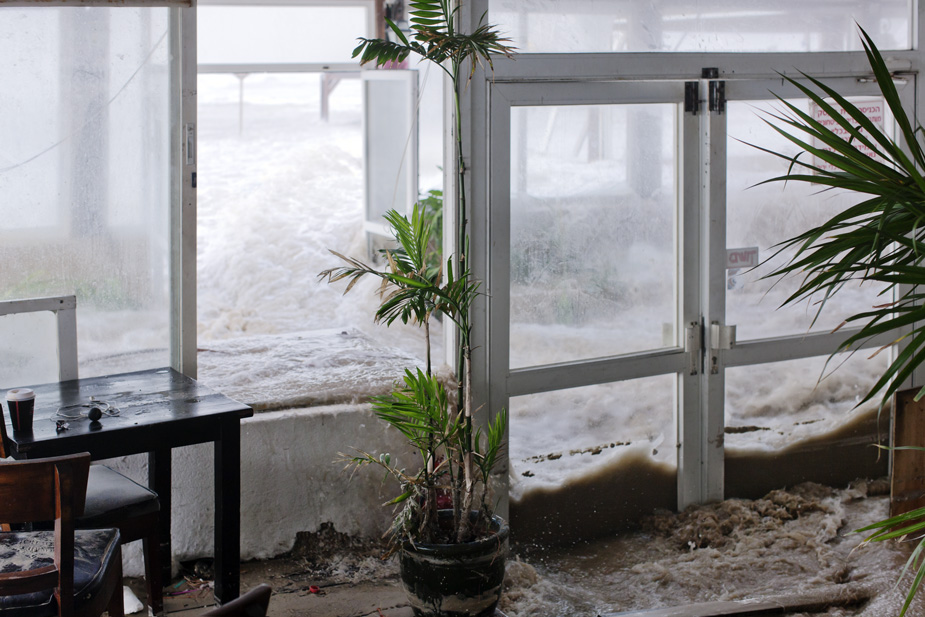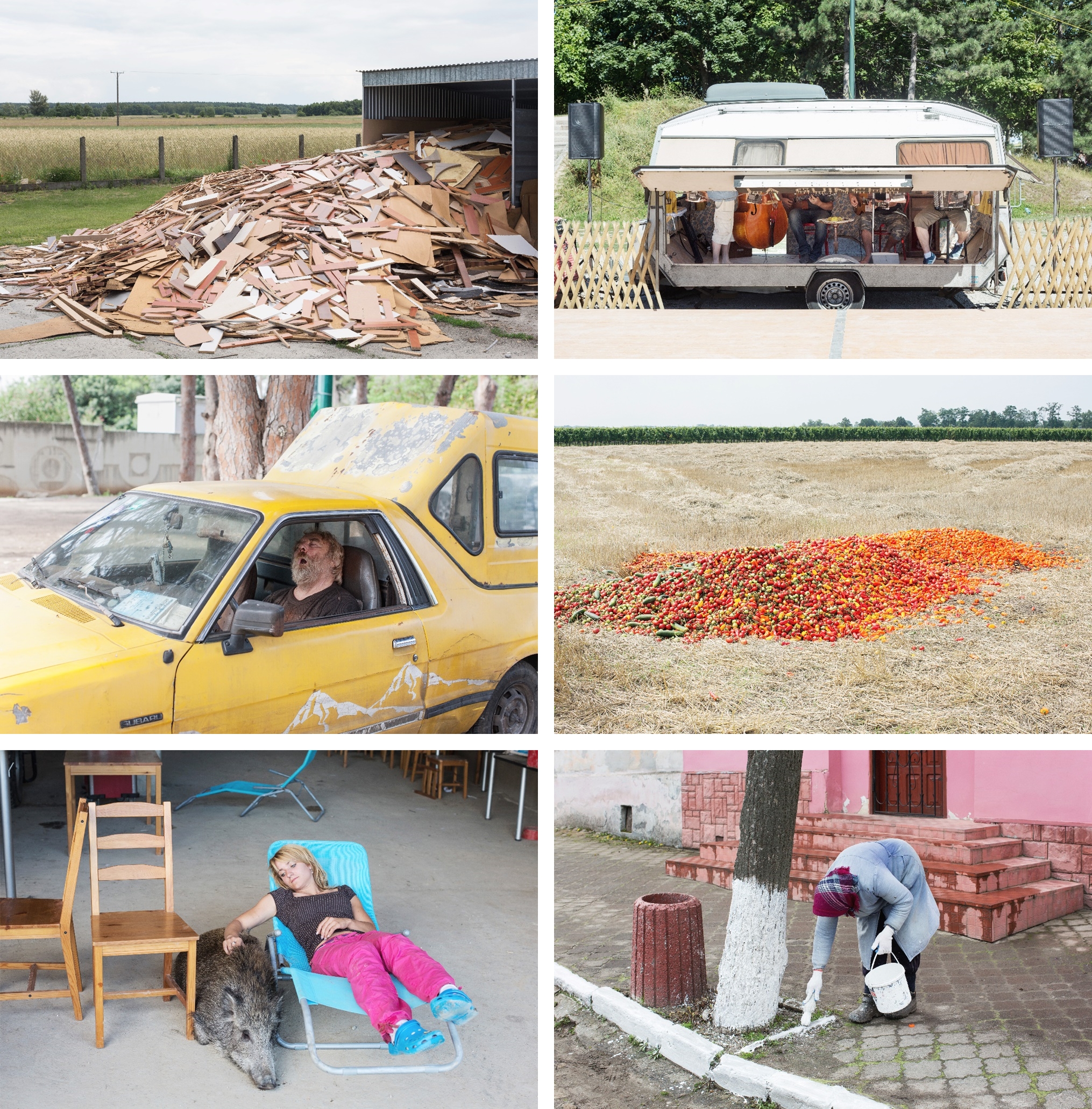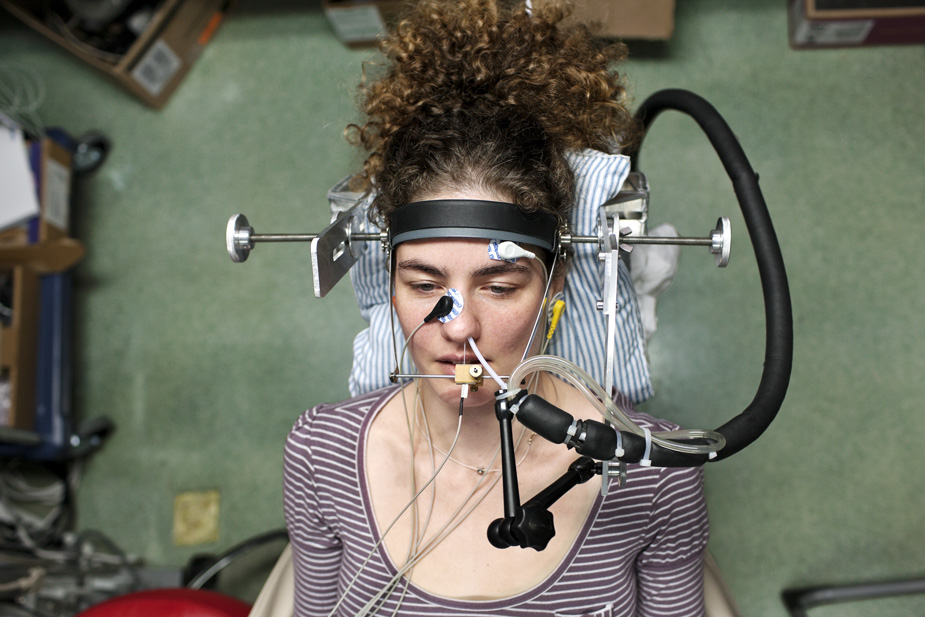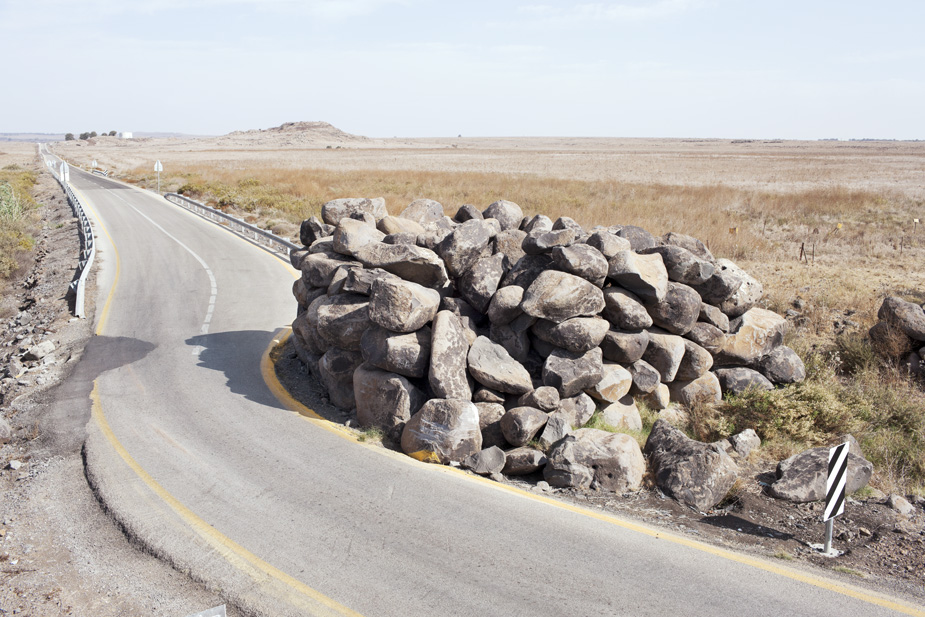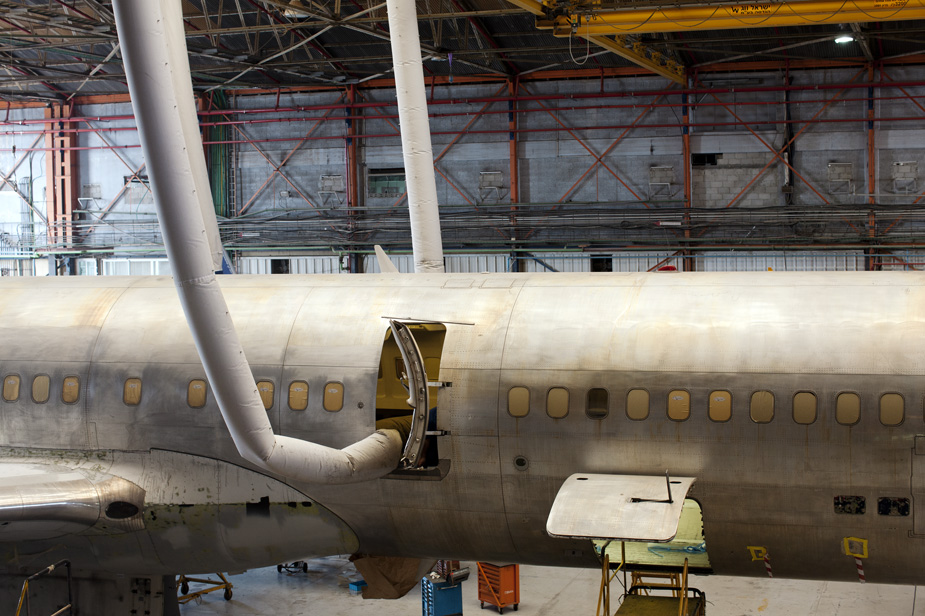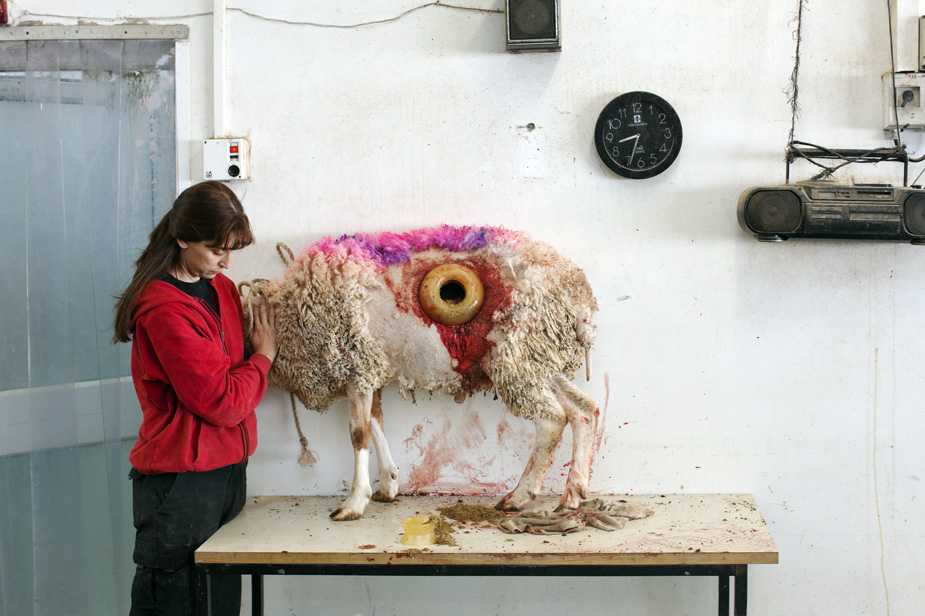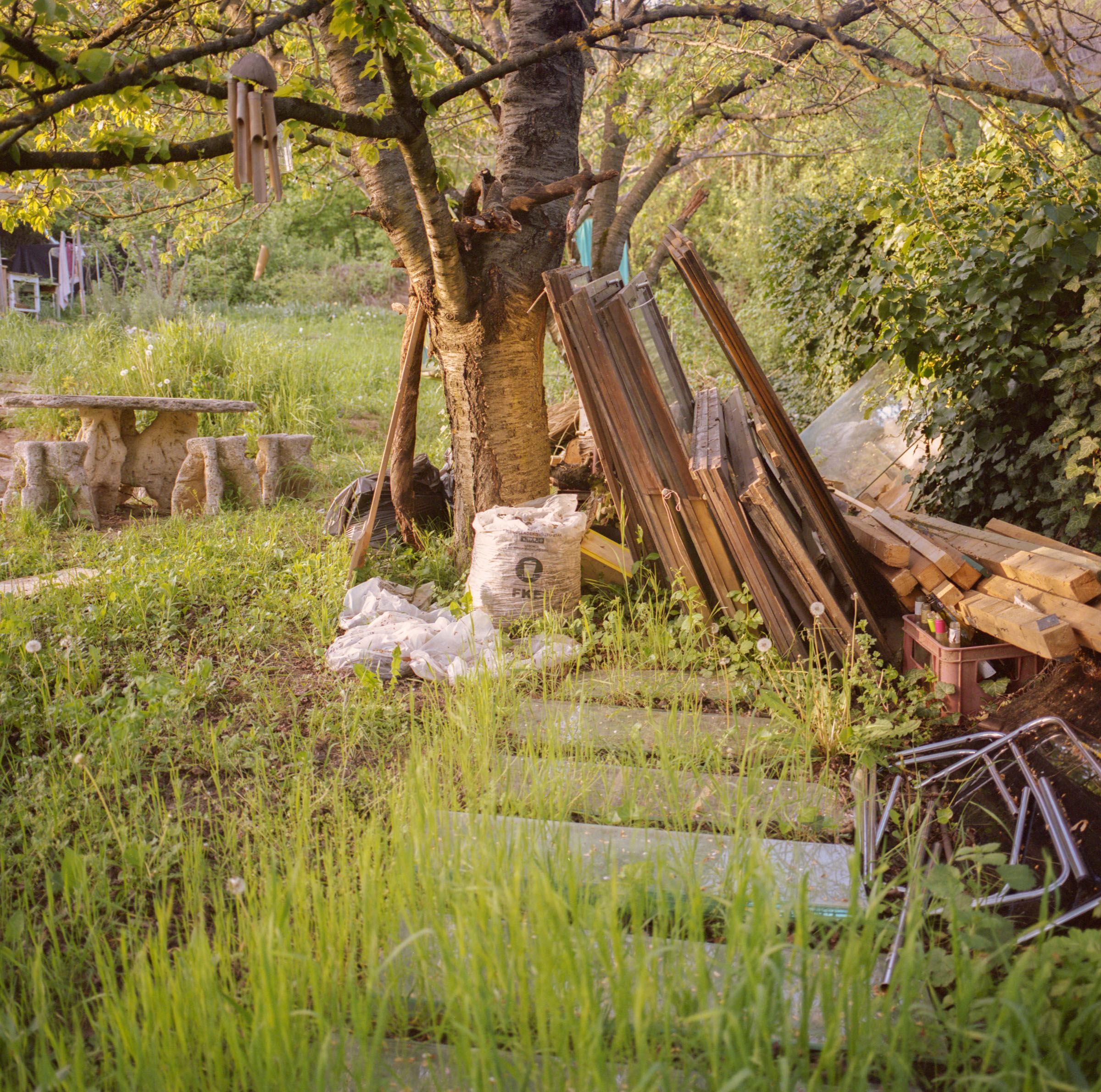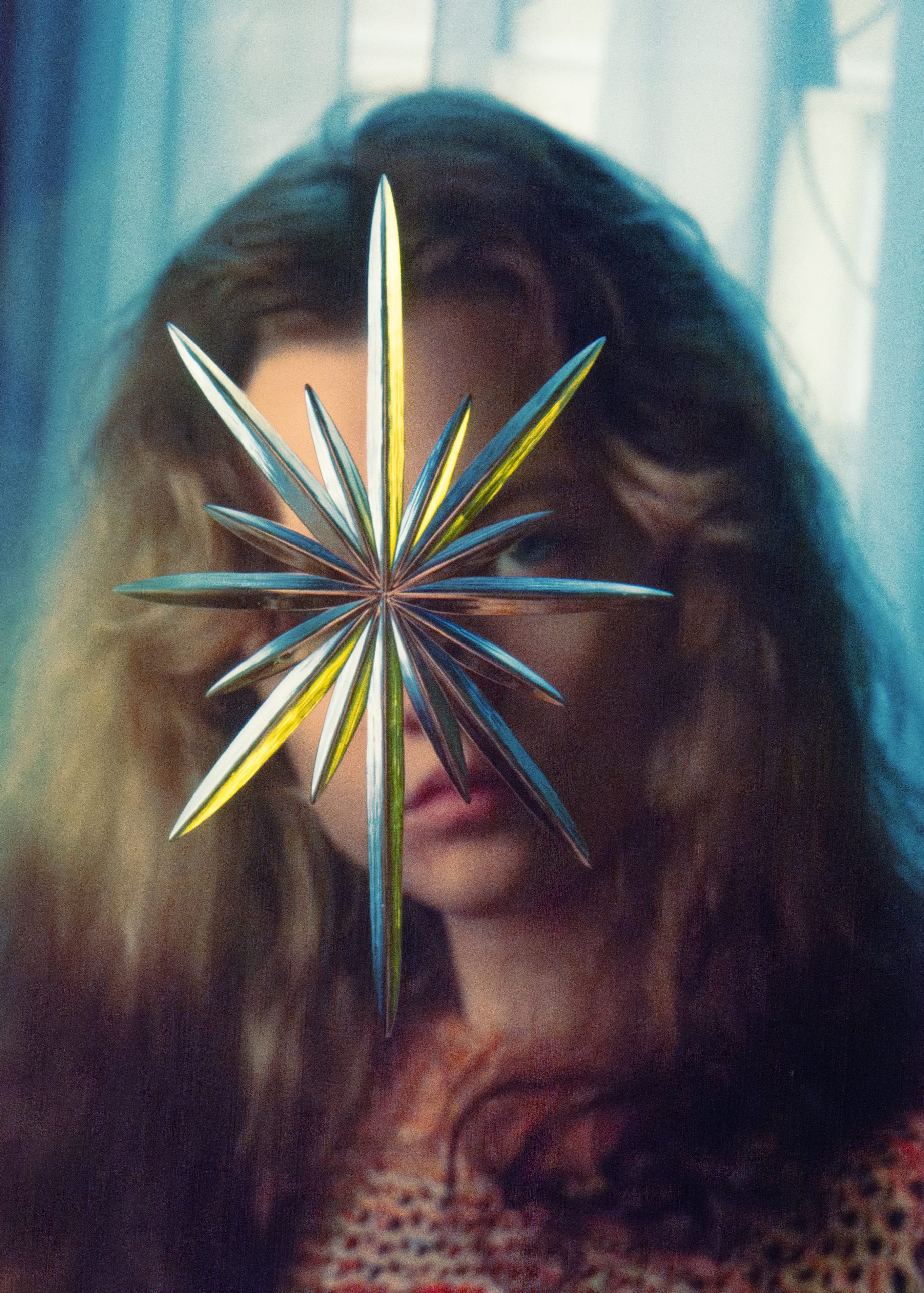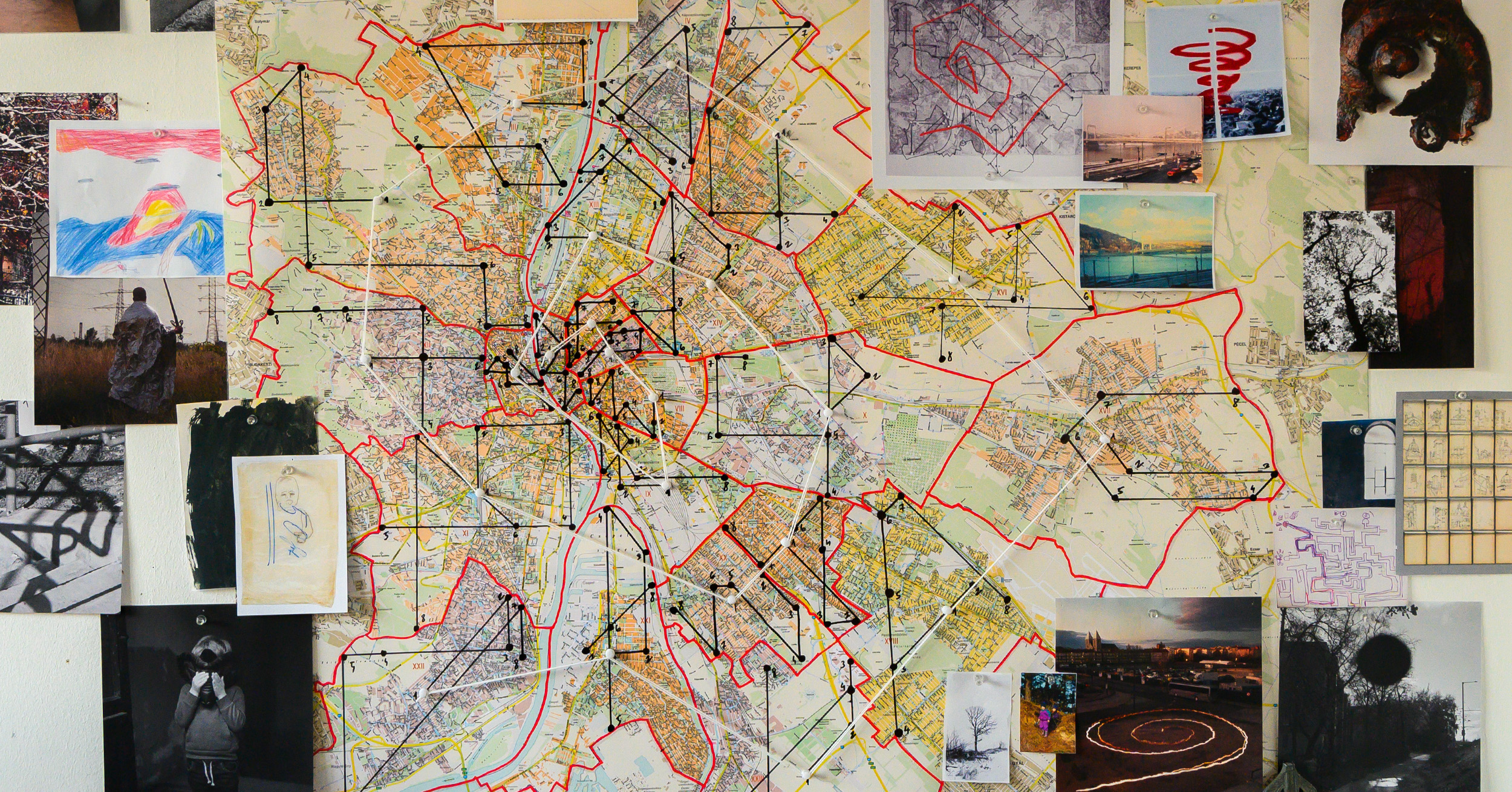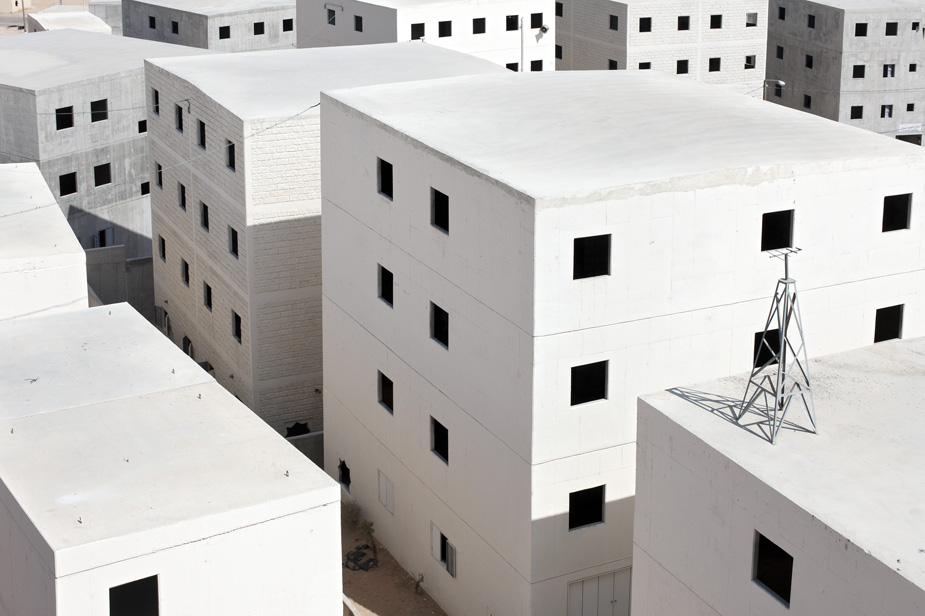

Interview: Martin Kollar
Martin Kollar was the youngest among a dozen photographers who were invited to explore the complexity of Israel and the West Bank territory. The selected artists developed their own approach to the subject, and were not bound to any aesthetical or content driven restrictions. Kollar decided to keep a neutral stance, and did not want to compare the Israeli and the Palestine territories; instead he was capturing situations and places from his own viewpoint as a visitor.
In September 2015 an exhibition of his work, Field Trip, was held at Robert Capa Contemporary Photography Center in Budapest. In November he came back to Hungary to hold a workshop for photography students of Moholy-Nagy University of Art and Design Budapest. He shared his experiences of his long-term projects and helped students to organize and develop their own ideas.
/// /
DIS: It took almost 2 years to complete Field Trip, but it wasn’t the first time you got involved into something of such big scale.
Marton Kollar: It’s been very interesting to be on a list with big names, like Jeff Wall, Thomas Struth or Stephen Shore. Suddenly I just appeared like being one of them… at least in that particular project. Developing something from the same starting line – let’s say. But it would not have been possible without my previous experiences. I already had many long-term projects behind my back.
DIS: That’s why they trusted you?
MK: To some aspect for sure. I was the youngest and less known among the selected photographers, but they knew I was familiar with the procedure. I knew how much time I have to spend with a project like this, and how painful it can get. The most important is to know, how to develop and shape your ideas on the long run.
DIS: Do you have any special methods for that?
MK: I rely on my cinema background… I studied at the film faculty in Bratislava, and have been working as a freelance photographer and cinematographer since graduation. I worked on many films, and it belongs to the character of such projects, that you can only develop them gradually and slowly. You have to spread your strength in a certain period of time. You can not just run quickly the first 100 meters and then get exhausted. At the start you already have to keep in mind, that in the middle you will probably get into a crisis. And that is what I experienced not just with my photography projects, but also in film shooting. I realized, that it doesn’t really effect the end result, when there are moments, which doesn’t work or getting too difficult. You have to pass through those critical periods.
DIS: Did you try to share your film production approach with the photography students?
MK: I noticed in my previous workshops, that in photography departments and schools around the world, mastering the medium is not a problem. When you are a little bit talented, it is easy to deal with photography as a medium. Difficult is to deal with the content, and to find the way, how to treat and approach your subject. And even further: what would be worth to take pictures of? Especially nowdays, when basically everyone is a photographer, everybody is playing with the medium and sharing pictures. In my workshops I try to help students and even myself to find what is worth to pick, and invest a certain period of life to capture it.
DIS: Did you have any pre-defined goals or expectations in your mind before starting the workshop?
MK: The whole idea was, that students should produce their own photography sketchbook, so they can organize their own content around that. A sketchbook is like a record of your thinking… when you find it 10 years later on a shelf, you might see, how you were thinking and operating back then. The sketchbook is like a frozen piece of time. Obviously the students will move beyond their current limits really soon, but a sketchbook can also be a starting point for a later project. Sometimes it happens that you have a really good idea, but you don’t believe in it at the moment, or you don’t have time to develop it. Ideas are basically circulating in our mind, and at one certain point you might just get back to an older thought you “stored” in a sketchbook.
It is also important, that when you are a student, you are very busy in a special context. You are constantly getting tasks, and you are just completing them or trying to avoid them. Life after school is a different experience: usually nobody is giving you tasks anymore. So I asked the students to find out, what they would do without any defined tasks… when nobody would ask them anything.
DIS: This workshop was not the first event, which brought you to Budapest in 2015. In September we saw your work exhibited in Capa Center. When looking at those photographs the question arises: whether you consider yourself as a documentarist photographer or not? You seem to balance between cinematic aesthetics and documentarism. Does it have any sense to use such established labels to define your work?
MK: I think it is a question from the past. It is not really important to define yourself by those descriptions or labels, as you said. I’ve been working with the medium for almost 20 years, and I could even see, how the description of those particular boxes have been shifted. The definition of documentary of the 1990’s sounds ridiculous today. You cannot apply the same rules. Also the approaches are changing… it would be better to describe it today more as observation based photography… it leaves you more space. But at the end of the day you can use any label. Honestly, I don’t really care about that. What I really like, when working with the method of observation, that those series of pictures still have a quality of future archives. Eventually those photographs won’t be lost, and they can operate as part of a future archive. Field Trip is a certain way of looking at a particular country in 2015.
DIS: But I also have got the feeling, that you perform some kind of an abstraction. You took the pictures in Israel, but some of them could be somewhere else on the globe or even in a different time. There is this uncertainty about your pictures, which unbounds them from the local context.
MK: It’s true, but it is part of my concept. These pictures have many crossing points: they can be understood as documents or not, they can be here or somewhere else, now or in the future or in the past. My work is balancing on those crossing points. And I’m curious how I’m going to look at my own pictures in the future. What kind of a new perspective will I have regarding my own archive?
DIS: Can you tell me something about the title? “Field trip” is not an obvious word to come up with, when talking about a militarized zone…
When I went there, I just didn’t want to take the position or perspective of an expert. I didn’t want to pretend, like I could know what those people should do. And I also didn’t want to use the obvious political dimension between Palestinians and Israelis. It seemed to be too strait forward. I felt more like an invited visitor, who can take a look at the situation. Who can record it and process the material when getting back home. It is almost like when you take the kids to a field trip. They go to a factory, for instance, and see what is behind the walls. Afterwards they cannot see the object from the perspective they looked at it before. For me it was a process of experiencing… a discovery with respect to the place.
DIS: One final question… you won the Prix Elysée lately, which supports you to work on your current project, Provisional Arrangements. What is it about?
MK: Up to now I always worked on projects linked to territory. Now I’m trying to do something with no territorial limits – it is interesting to play with time not strictly connected to space. Provisional Arrangements is linked to temporality. Things, you experienced as long lasting, turn out to be only temporary. I’m interested in capturing the disintegration of permanence into temporary and provisional. I am trying to understand the issue that you are changing. And it is also a process of disconnecting from my past work… I don’t see the final work yet and I’m also curious about it. The idea is constantly evolving in my head.
/// /
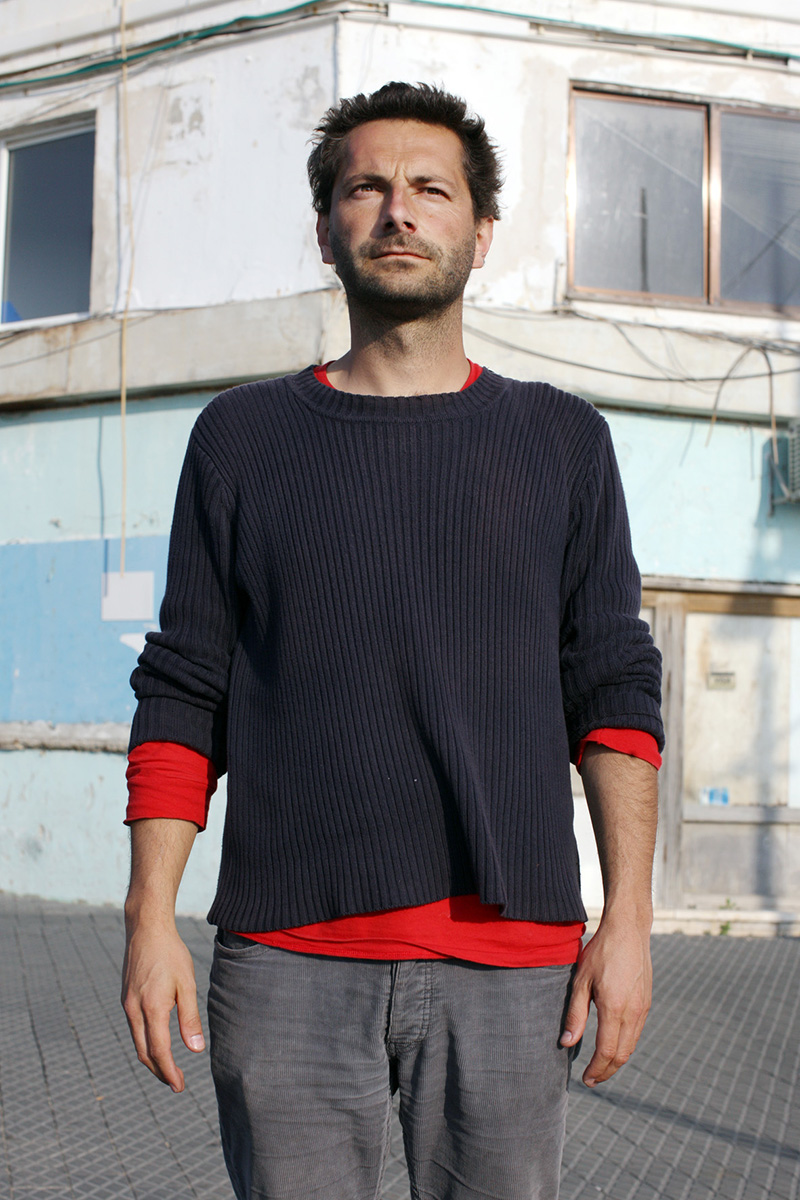
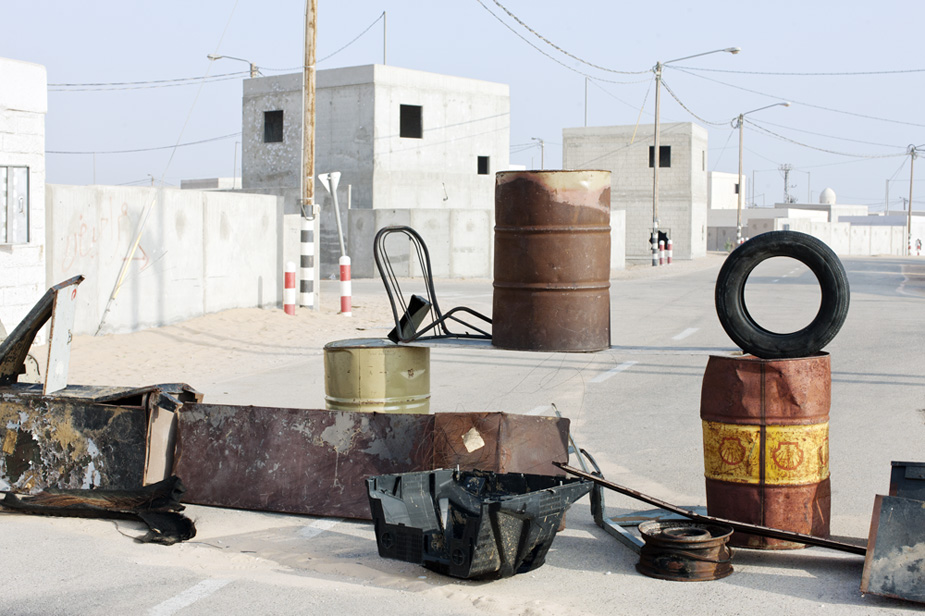
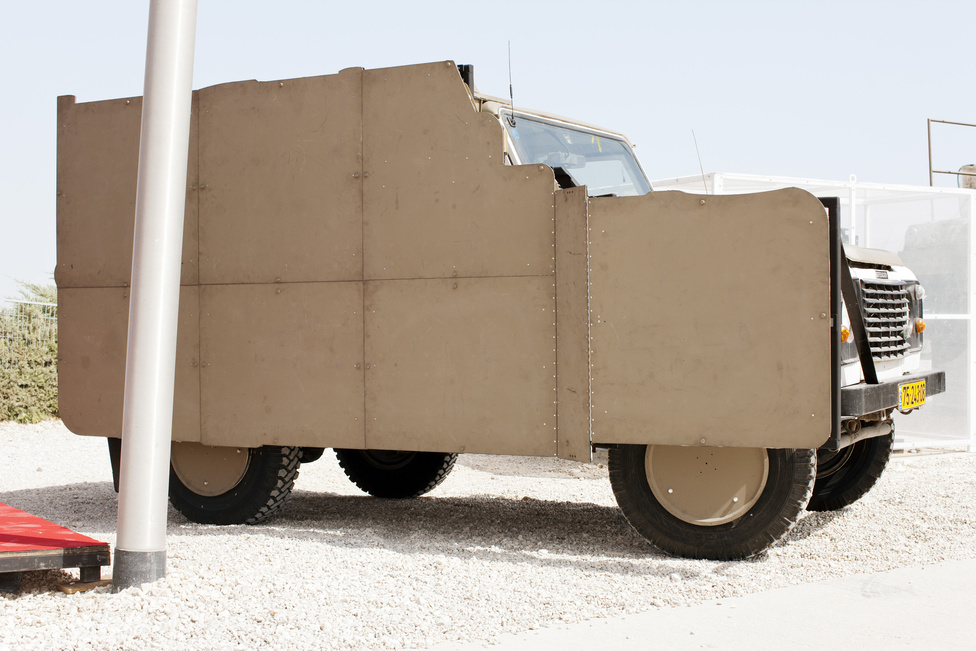
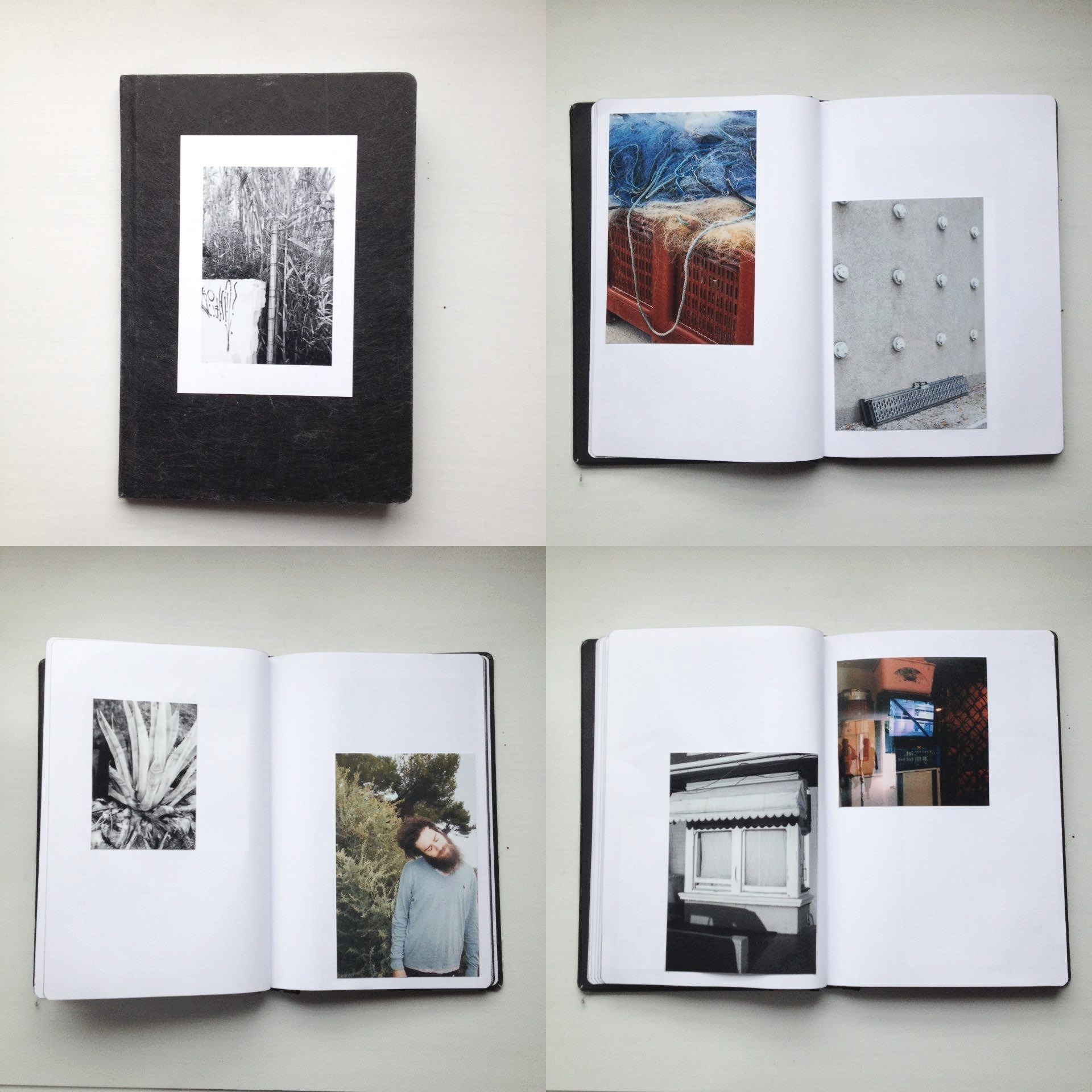
![FullSizeRender[1]-tile](http://designisso.com/wp-content/uploads/2016/01/FullSizeRender1-tile.jpg)
